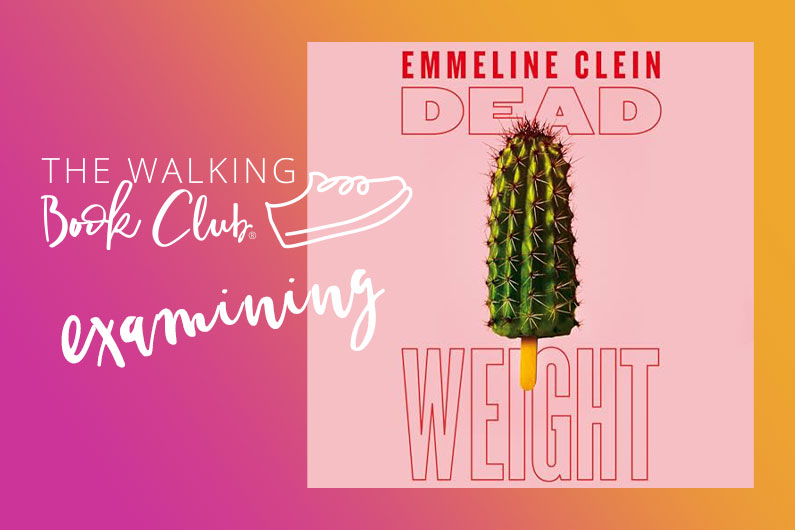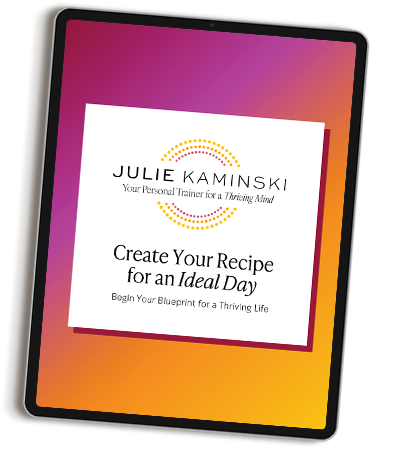Examining ‘Dead Weight’: A Thought-Provoking but Flawed Exploration of Hunger and Harm
If an audiobook prompts a strong reaction, it’s worth further examination. Dead Weight, by Emmeline Clein, gave me pause on many fronts. Let’s get into it.
My first thought was: 11 hours of moving and listening to an essay on hunger and harm – yikes! But Karissa Vacker is one of my favorite narrators, so I knew the vocal delivery would be top-notch. With earbuds in, Spotty leashed up for extra-long walks, and the narration sped up to a little over nine hours, I got moving.
I have issues with Dead Weight, but first, what I appreciate.
Clein weaves together culture, history, economics, treatment, media, medicine, statistics, and personal narratives around what she believes led to the mass phenomenon of eating disorders in a way that is interesting and thought-provoking.
Note: If you choose to listen to the audiobook, consider taking a screenshot of the chapter guide from the book information to follow the themes of her essays versus the audiobook playlist, which lists as tracks, not essay titles.
Now, let’s delve into the aspects that rubbed me the wrong way
I want to emphasize that these are my personal reactions and not a dismissal of the author’s work. I consider myself a feminist, so I’m for a hard look at the topics she brings forth, but the heavy blame seems to overreach at many points in her writing.
Here we go.
First, the title, Dead Weight: Essay on Hunger and Harm, feels like a misnomer. Essays on Disordered Eating feel more accurate. There’s a difference between the two. As a National Board-Certified Health Coach (a credential administered by the American Medical Association), with over three decades of working with women often struggling with maintaining a healthy weight, the topic of weight, hunger, intervention, and acceptance is nuanced and highly personal. She also takes a broad paintbrush stroke of negativity to the wellness industry field, the classification of obesity as a disease, and pharmaceutical intervention.
Let’s start with her writings on the wellness industry.
She states:
“I think it’s more like the way that the wellness industry and the health establishment in this country are in its current form—having grown out of a very long history of explicit racialized medical things—currently constructs that mind-body-spirit connection to try to make us believe that we can only access it through purifying the way that we consume food and basically trying to convince us that we’re only going to be able to bring our mind, body, and spirit into alignment if we follow a very specific set of dietary rules that are usually designed around shrinking the body, or inspired by classed and racialized ways that we separate out different types of food in order to demonize certain bodies.”
Woah, hold on here a minute. Let’s look at history from a different perspective. I found my calling to wellness in the early 1980s with college graduate-level courses in stress management. A time of greater awareness of the mind-body connection. The wellness field has experienced tremendous positive growth, a totally different slant from the dietary rules for a shrinking body she writes about.
Let’s dive a little deeper into the past 50 years.
The ’70s saw the rise of the holistic health movement and an appreciation of mind, body, and spirit as part of overall well-being; the ’80s saw the expansion of alternative medicine and increased recognition of wellness programs to decrease health costs and improve productivity. Technology entered the scene in the ‘90s with an emphasis on prevention. Mindfulness and a more personalized approach to wellness continued.
Today, technology allows for virtual visits, and wearable devices allow for enhanced monitoring, real-time insights, and continued awareness of the connection of eco-friendly practices. Trends in wellness continue to value a holistic, preventive, personalized approach, using technology to monitor and improve health. The wellness field continues to evolve, and a growing understanding of the interconnectedness of different aspects of health.
Let’s pause for a minute on technology, which she writes exacerbates issues of disordered thought. Advances in health technologies are valuable tools for improving health, creating new healthy behaviors, providing real-time feedback, and making services and information more accessible—all of which can be lifesaving in some cases.
This leads to the next topic I take issue with – the critique of obesity as a disease and the overarching condemnation of the GLP1 class of drugs.
Both can be put on a spectrum of pros and cons with many shades of grey. Again, another topic addressed that is nuanced and multi-faceted.
She critiques the classification of obesity as a disease. Clein presents misleading medical information highlighting that being overweight does not have a dramatic effect on health, using overweight and obesity defined through Body Mass Index.
I agree that the Body Mass Index is a flawed measurement. Thankfully, there is growing awareness of better ways to measure healthy weight, hence determining what a healthy weight is for individuals. However, peer-reviewed journals about health risks are clear. Obesity significantly increases the risk of numerous health conditions, affecting nearly every system in the body – hypertension, heart disease, type 2 diabetes, metabolic syndrome, respiratory issues, cancer, joint health, mental health, and reproductive health. Overweight individuals face lower risks compared to obese individuals, but there are health implications for both.
She writes that “classifying obesity as a disease” implies a “cure” for that disease, which has been dieting, and that dieting is likely the cause of obesity. Recognizing obesity as a disease influences screening, management, perception, insurance coverage, and funding to understand causes, effects, treatments, interventions, approaches, and policies. Equally important is the frame it can provide for someone who has struggled with maintaining their personal healthy weight. It recognizes that obesity is not simply “eat less,” not a failure of willpower, or poor choices as a blanket of causes.
My observations over the last three decades mimic what other experts have expressed.
There was a time when a “calorie was a calorie,” and the formula for losing weight was presented as simple—a calorie deficit results in weight loss. We now know how flawed that thinking is. Weight loss and weight maintenance are complex and impacted by genetics and epigenetics. And don’t get me started on food desserts, and the socio-economic politics surrounding food, and the list goes on, each complex on its own.
Thankfully, we’ve seen the rise of new ways of thinking to add shades of grey to the weight-focused approach.
Ultimately, the approach to weight is personal and hopefully lies somewhere in the middle. Clein seems to lie on the one end of the spectrum, highlighting the pressure to conform to society’s narrow beauty standards with airbrushed magazine covers to flawless social media personalities of unattainable and unrealistic “perfection.” I agree that it fuels disordered eating behaviors. We should also shy away from the other extreme, the glorification of unhealthy habits under the guise of body positivity, which downplays the importance of healthy lifestyle choices under the guise of body acceptance. Ignoring these risks can be harmful.
I believe the answer lies in the middle, promoting body positivity without denying the potential health consequences of obesity.
I am grateful for the terms that give rise to the middle ground.
body positivity (acceptance, inclusivity, self-love),
body neutrality (health over size, not a scale number),
body inclusivity (expands on positivity for all shapes and sizes, including disability, race, gender, age, regardless of physical attributes),
weight neutrality (health is prioritized regardless of weight, decouples weight from self-worth, and has a positive relationship with food, exercise, and body image).
Clein’s judgmental tone is also evident when she critiques GLP1 drugs, writing that they seem like an “injectable eating disorder.” Her portrayal of these drugs as fostering a new age of techno-capitalism, where hunger is another inconvenience to be eliminated, paints a bleak picture: “What these drugs offer isn’t a full life, but one lived in the uncanny valley, where appetite is an outdated relic of a less evolved era.” She writes that GLP1 incites extreme nausea if someone taking the drug eats even a normal-sized meal; her research is “according to many patients.”
No doubt there are side effects to any drug, but they also include things like sleeping better, lower cardiovascular risks, and less stress on joints. “According to members” of my health-related community, GLP1 has been game-changing, allowing for improved quality of life. Taking any medication is a personal decision, but for many, it can be a tool to help treat obesity.
Ultimately, while Dead Weight provides a compelling critique of the culture surrounding eating disorders, it educates readers on what’s wrong but not much about how to make it right.
The juxtaposition of casual pop culture references (The O.C., Nicole Richie, Jennifer’s Body, etc.) and academic references covers a wide spectrum of what’s wrong with treating eating disorders in the U.S. Still, I’m unsure I learned anything about better alternatives and preventative measures.
I’d like to conclude with a positive point. Clein’s essay in Dead Weight opens the discussion: “What has consuming food meant to you throughout your life?”
It’s a great question, likely with many unique answers and probably answered differently as time changes.
It’s a great start for an open discussion.
With warmth,
Julie






